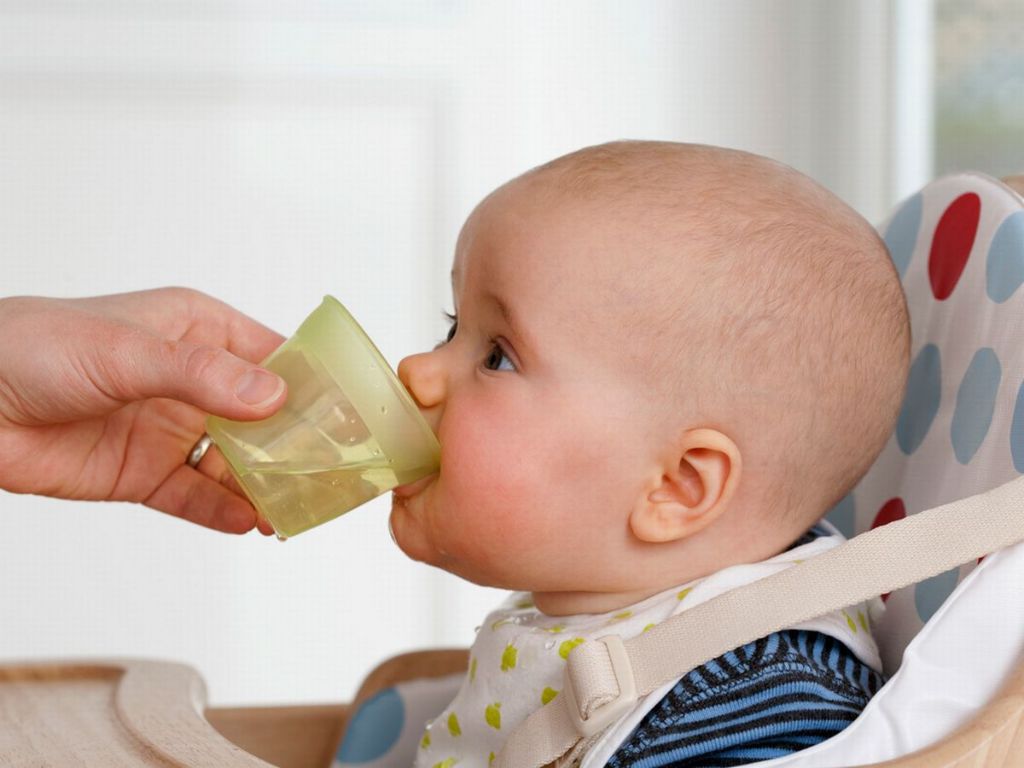
When will babies be able to drink water? Water consumption is crucial for our survival and well-being. However, it would help if you kept giving your infant breast milk or formula for the first year of life. What about the water, though? We’ll look at when newborns can drink water and how much they require in this piece. We will also offer some advice on introducing water to your infant. Learn more by continuing to read!
Everyone should drink plenty of water as part of a balanced diet. It supports the body’s healthy functioning and hydration. But when it comes to infants and young children, their formula or breast milk provides them with all the water they require. Other foods, such as prepared fruits or vegetables, can give infants water. Infants younger than six months old should only consume boiling and cooled water, advises the World Health Organization.
Because a baby’s system is still growing, being intoxicated by water might result in seizures. Therefore, holding off on giving them water to drink until they are at least six months old is recommended. Providing water to your infant before they are six months old may also prevent them from absorbing iron. We’ll explain more about when babies can drink water in this blog post, along with some advice you should keep in mind before giving them a drink.
Why Can’t Babies Drink Water?
Because they are born without the reflex to swallow, babies cannot drink water. Even if they could drink water, it would still be hazardous since their kidneys are not evolved enough to filter out bacteria and other contaminants. Babies can suffer from acute dehydration, potentially fatal with even a tiny amount of water. As a result, babies should only be given fluids under the direction of a doctor, including little amounts of water.
Also Read – Anxiety vs Panic Attack | What are the Differences?
What age Can Infants Drink Water
You can begin giving your infant water with their meals when they are six months old. All a baby should consume in the first six months of life is breast milk or formula. However, before giving your infant any water to drink, it’s crucial to consult your doctor. Some medical authorities advise not offering water to your infant until they are at least eight months old.
How much water should babies drink
From 6 to 12 months, you can usually offer your infant 4 to 8 ounces of water per day but bear in mind that this shouldn’t take the place of formula or breast milk at this time. Instead of counting ounces, provide some with meals, snacks, and natural times throughout the day when they might be thirsty (like when they drink water).
You can increase the amount of water your child drinks as they age. The American Academy of Pediatrics recommends drinking 2 to 5 cups of water per day for children aged 2 to 5 and 1 to 4 cups for babies between the ages of 12 and 24 months. Your local health authority or physician might also determine the amount of water your infant requires.
What Can Babies Drink At 6 Months?
Your infant can start taking sips of water at six months. At mealtimes and in between meals, you can provide them with water. Please don’t give them too much water to avoid upsetting their digestive system. In diluted form, fruit juice, milk, or formula should be given to infants under six months old.
Breast Milk or Water?
Every feeding session begins with breast milk, preferable to water as a beverage. In addition to quenching your baby’s thirst, breast milk strengthens their immune systems. Breast milk aids in the growth and development of your baby and safeguards her against infections.
Parents should give their kids at least six months before introducing them to water. When your youngster is thirsty, please give them a few sips of water. Breast milk and formula can help your infant stay hydrated in the interim. As was already said, a baby’s digestive system is susceptible, and unclean water might make their frail stomach bloat. A nursing woman who abruptly stops feeding her infant will eventually become malnourished. Breast milk can be substituted with water. However, less breast milk will still be produced. Infants who are bottle-fed at high temperatures may get dehydrated. In these cases, ensure the water is clean and, ideally, lukewarm. Using more water than is advised can cause water intoxication.
How Do I Introduce Water To My Baby?
You can introduce water to your infant in several ways. During mealtimes, you can give them a tiny quantity of water to drink from a cup or provide it to them in a bottle or sippy cup. If you want to gradually increase the amount of food your baby consumes, you can combine water with formula or breast milk. Regardless of how you introduce water, start slowly and with modest amounts. This will ease your baby’s transition to the taste and sensation of water without overwhelming them. Of course, you should always watch over your child while drinking water because choking is possible.
Frequently Asked Question –
Ans. – The American Academy of Pediatrics states that between the ages of 6 and 9 months, your baby is probably ready for you to start giving them sippy cups.
Ans. – It’s because, until a few months after birth, newborns’ bodies aren’t prepared for water. They are susceptible to nutrition loss and water intoxication due to their small stomachs and developing kidneys.
Ans. – Goat milk or plant-based milk (like almond, rice, coconut, or oat milk) if your baby is younger than one year old. These milk lack the nutrients your baby needs for growth and development.
NOTE: Cow’s milk usually is only recommended for babies after their first birthday.
Ans. – Types of juice you can give to your child
100 percent pure fruit juice.
100 percent pasteurized.
mild flavors; apple or pear are good ones to start with.
no sugar added.



